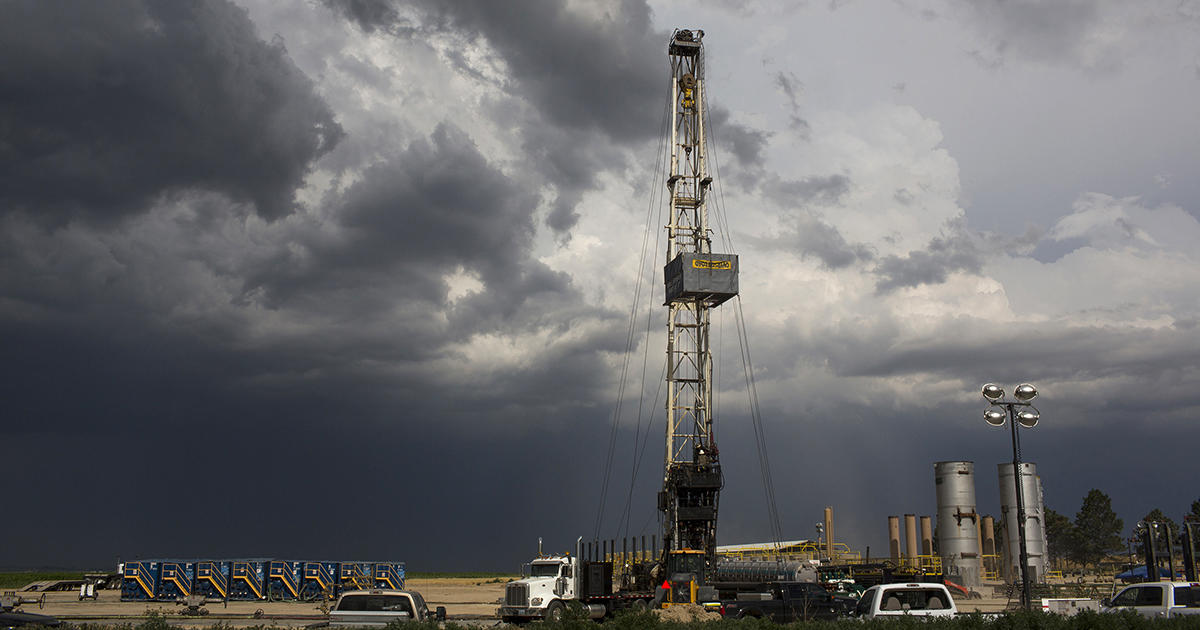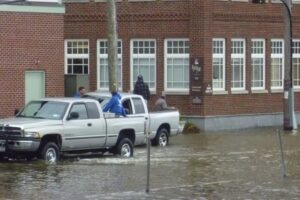by Grace Thybulle
Every election cycle we are presented with a new bank of buzzwords and phrases that are thrown around by candidates and the media. Many are left to wonder what these terms even mean outside the context of politics. So that being said, what exactly is fracking? Or more bluntly, what the frack is going on?
I’m sure that I’m not alone in my journey of understanding what fracking is and why it has been a major recurring issue in this year’s election. What I’ve learned is that fracking (also known as hydraulic fracturing) is a practice used to extract natural gas and oil from shale deposits by drilling into the earth and injecting a mixture of water, chemicals, and sand at extremely high pressures. This effectively allows the natural gas and oil to escape from the ground then be collected and used as energy. Fracking is undoubtedly an amazing technology, but like fossil fuels, it’s got some pretty grave consequences.
Let’s start with the good news. Fracking has allowed for an energy renaissance in the United States by nearly severing our dependence on foreign oil, pushing energy prices to historic lows, and creating millions of jobs. It has also allowed the United States to save hundreds of millions of dollars that would usually be spent on foreign oil imports.
The bad news is — you guessed it — very bad. Fracking can harm water quality, air quality, and disturb entire ecosystems. The chemicals involved in the process have been found to contain harmful carcinogens and these carcinogens have the opportunity to pollute groundwater and aquifers that surround fracking sites. Finally, the largest most obvious issue is the contribution it makes to climate change.
On paper it’s hard to not like what fracking has done for our economy. I’m no fracking sympathizer, but I also understand that it has provided hope for states that have been on an economic downturn. This is where major support for Trump has grown. Trump has consistently proven to be a protector of fossil fuels and the jobs they provide. The issue has become that Trump has gone as far as to deny climate change and climate scientists, and institute rollbacks on environmental regulations meant to keep us from accelerating the already rapid pace of climate change.
Biden’s take is slightly better as he does recognize the impending harm of climate change and has loosely committed to plans of achieving zero net emissions by 2050. Still Biden has refused to totally ban fracking. I don’t believe an immediate fracking ban is what’s needed given the jobs that would be lost in an already floundering economy, and how it would once again push our economy to depend on foreign oil. Nevertheless what we do need is a clear plan to phase it out.
It’s dangerous to pander to the false idea that the U.S. economy will be able to eternally grow from a finite and deleterious resource. I believe that it is in Biden’s best interest to continue to discuss fracking as a segue to new clean energy and jobs. Through reinvestment of those hundreds of millions of dollars saved by the low demand for imported oil, we as a country could successfully wean ourselves off fossil fuels and create promising options for a sustainable future.
Climate change is very obviously not a problem unique to the U.S. and combating it globally presents a plethora of challenges and foreign relations issues. Unfortunately for us, time is the finite resource depleting the fastest. If our country doesn’t commit to feasible plans to halt climate change there won’t be an economy left to salvage. I’m hoping that this election will push our leaders to finally get to work.











Be First to Comment